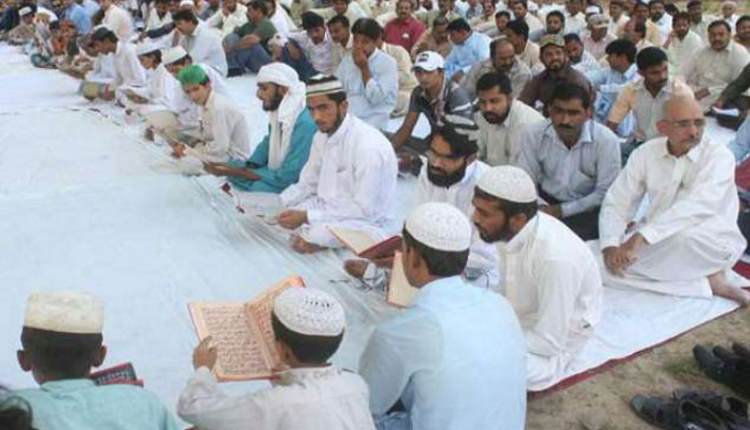Prayers for the deceased and importance of rituals like Qul, Chaliswan etc.
My Nana passed away in September and none of us had the knowledge of what is required of the family members of the deceased in the light of Islam. First we were not sure of what to recite when he was on his death bed so we all started by reciting Surah Yasin until he passed away then we all recited “Kalima Tauhid” till his “Janaza”, however my Nani insisted on reciting Surah Yasin even after that. We also held ‘Quls’ the next day for which we recited “Surah Ikhlaas”. Then my Nani placed white sheets in the drawing room till my Nana’s “Chaliswan” and we were all asked to recite the Holy Quran and Surah Yasin but for some reason I wasn’t very comfortable with that because not only was the environment very depressing (it maintained the sorrowful ambiance) I was under the impression that only 3 days sorrow is allowed and after that people should get on with their daily routines. My Nani also held the “Jumairats” and then the “Chaliswan” when again the entire Quran was recited.
I dont know if the recitation of the Quran really helps the deceased in any way. And secondly what all can the immediate family members do to provide “Sawab” to the deceased’s soul? As far as i know, I don’t think there is any requirement for Quls, Jumairats and Chaliswans as it only adds to the sorrow instead of reducing it without helping the deceased in any way. Please guide me regarding this issue and if possible please site any relevant ayas or ahadith.
In the end I would like you to comment on all the ways (if any) a family can send Sawab to the deceased. Can one give food or money to the poor in the name of the deceased? Or is it that only the charity given out in a person’s lifetime is counted? There was also a concern from my Nani’s side regarding “Qurbani” on “Eid ul Adha”, she wanted to sacrifice two goats one for herself and the other in her deceased husband’s name and she was torn between doing the Qurbani or sending equivalent amount of money to the victims of Tsunami.
Answer
There is a mention in the hadith literature that if a person is dying we should recite surah Ya-Sin over him. However, it has not been recommended after the death of an individual. In fact, nothing has been recommended to be recited after the death of an individual except that we should say Janaza prayer for him or pray for his forgiveness after burying him or even later whenever we feel like. Occasions like Qul, Chaliswan, and Barsi are not only useless, they are very likely to be categorized as bid’at which is an attempt to add to (innovate) God’s religion something that was not given by His messenger, alaihissalaam. The prophet, alaihissalaam, said: “You must follow my sunnah and that of the rightly-guided caliphs. Hold to it and stick fast to it. Avoid novelties, for every novelty is an innovation, and every innovation is an error.” (Abu Daud) The same book reports another statement attributed to him thus: “If anyone introduces an innovation, he will be responsible for it. If anyone introduces an innovation or gives shelter to a man who introduces an innovation (in religion), he is cursed by Allah, by His angels, and by all the people.”
Nobody can add anything to the credit of an individual’s account. The Quran says: “… no soul shall bear the burden of another, … there shall be nothing for a man except what he strives for” (53:38-39)
There is no point in doing any act of piety on his behalf now that his trial is over. It is now the trial of those who have been left behind. All that you can do for the benefit of the deceased is to pray for him as much as you can. If God Almighty would will, He will accept your prayer keeping in view the performance of the deceased. If he was a pious and God-fearing person then he will insha’Allah go to the paradise. The best thing those of his relatives who have been left behind can do for him is to do good deeds themselves so that they too can join him in the Paradise in the hereafter. The Quran says: “We shall unite the true believers with those of their descendants who follow them in their faith, and shall not deny them the reward of their good deeds – everyone is responsible for his deeds.” (52:21)

